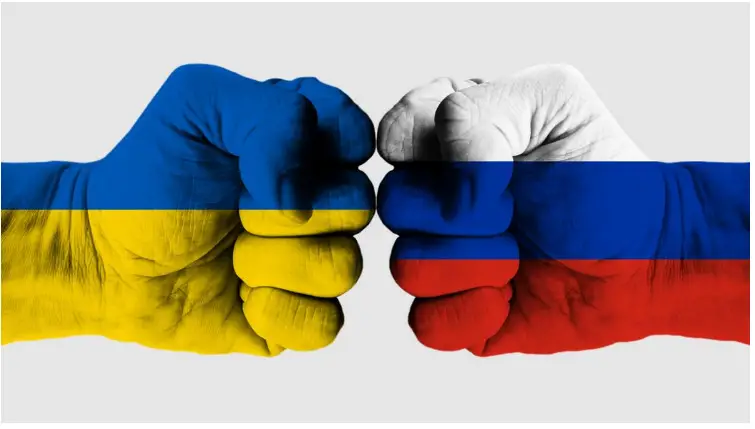The world economy and financial sectors are severely affected by the Russian invasion of Ukraine. The war has also affected world trade, financial sectors, multinational corporations, and national economies, including the US economy.
The United Nations Conference on Trade and Development (UNCTAD) has cut its global economic growth projection for 2022 from 3.6% to 2.6% due to the ongoing war between Ukraine and Russia and changes in macroeconomic strategies made recently by the nations.
Major Effect on Global economy
The world economy hit by the COVID-19 pandemic had been gradually recovering, however, the war between Ukraine and Russia could slow down the important economic growth.

The following are the main impacts of the war between Russia and Ukraine. Top 10 world economic crises due to the Russo-Ukrainian war.
10. Impact on Global crude oil production
Russia is the third-largest oil producer in the world. They produce approximately 13% of the world’s crude oil production. After Russia attacked Ukraine, the cost of crude oil rose to levels close to $100/bbl and is expected to even reach $115/bbl amid tight supplies around the world.
9. Impact on Natural Gas
Russia is the second-largest producer of natural gas and the largest exporter of natural gas. 40% of its natural gas from Europe was supplied by Russia. After the war, the supply of natural gas was significantly reduced, which resulted in the increase in the price of crude oil and natural gas on the world market. Germany, probably the largest importer of natural gas from Russia, has rejected plans for an underwater pipeline that would transport Russia’s natural gas to Europe.
8. Significant increases in Cyberattacks
Cyber attacks are tactical techniques used by Russia against Ukraine to weaken its administration and economy. Later, cyber-attacks have also spread to different nations including the US. Russia is home to the most famous criminal programmers, and most of them are supported by the state.
With the increasing dangers of cyber attacks, Western organizations and offices ensure their frameworks are protected against known weaknesses. The UK’s National Cyber Security Center is supporting your defenses online, to watch for cyber attacks and their consequences in Ukraine and around the world.
7. Impact on Edible oil
Ukraine is the main exporter of sunflower oil; Ukraine alone accounts for almost half of world sunflower exports. After the Russian invasion, the export of sunflowers was blocked and shippers will struggle to supplant supplies.
In India, organizations are left with very few options yet to think about increasing the costs of edible oils consumed on a daily basis in a very short time. And also, more than 70% of India’s crude edible oil is obtained through imports.
6. Impact on the global Stock Market
The impact of the Russian invasion of Ukraine has severely affected the stock market. This crisis causes volatility in the markets in the short term. Market volatility could leave a mark on financial investors’ portfolios. However, it results in a loss of investor confidence and spending control. Meanwhile, cryptocurrencies have also fallen as a result of the conflict between Russia and Ukraine.
5. Impact on Global Banks
European banks are the most exposed to new backing from Russia, especially those from Austria, France, and Italy. Figures from the Bank for International Settlements (BIS) show that banks in France and Italy each hold exceptional cases of around $25 billion in Russian debt, while Austrian banks held $17.5 billion. billion.
The terrible news for European banks is that there has been a sharp increase in spending on US dollar funding in the euro trading market. Banks use this market to raise the dollars that are critical to most global exchanges, so higher rates will fall on their edges.
4. Impact on global transport
With global transportation currently severely affected by the fallout from the pandemic, the conflict is likely to create more problems. Transport modes likely to be affected are shipping and rail freight. Although the railway transports only a small part of the entire cargo between Asia and Europe, it plays a vital role during the continuous interruptions of transport and is constantly developing. Countries like Lithuania expect to see their rail traffic seriously affected by the sanctions against Russia.
3. Significant impact on Automobile Sector
The automotive sector is expected to be heavily affected by the conflict. Rising oil costs, followed by shortages of semiconductors and chips and other rare earth metals, are likely to increase the burdens on the industry. In addition, Ukraine is also home to many organizations that produce vehicle parts for car manufacturers.
Indeed, even before Putin’s soldiers attacked Ukraine, the world economy was stressed by rising inflation, entangled supply chains, and falling equity costs. The crisis in Ukraine has had a great impact on the automotive sector.
2. Impact on Supply chain
The world’s out of the blue vigorous recovery from the pandemic. Organizations scrambling to track down an adequate number of natural substances and parts to create products to satisfy client needs. Overpowered manufacturing plants, ports, and cargo yards have implied deficiencies, delivering delays and greater costs. Interruptions to Russian and Ukrainian enterprises could postpone any getting back to ordinary circumstances.
1. Significant impact on food production
Russia and Ukraine are the main producers of agricultural commodities, particularly wheat and maize which are traded globally. Ukraine alone produces about 10% of the world’s wheat and 16% of all corn. Together with Russia, they produce 30% of the wheat. Most of these products are topographically packaged in the Middle East, Southeast Asia, and China.
Increasing conflicts in both countries have made global wheat markets unpredictable due to concerns regarding a decline in wheat stocks from the Black Sea district. The clash between Russia and Ukraine could lead to bread shortages in the Middle East and Africa, as they depend on Ukrainian wheat and corn. Food expansion has been on the rise as of now, and Russia’s capture of rich agricultural land in Ukraine would only increase food costs.
Final Thought
The Russian invasion of Ukraine has killed thousands, displaced more than 2 million people, and created challenges for the global economy. The conflict in Ukraine will trigger a huge negative impact on the reserves of the world economy, increasing inflation and slowing down world economic growth.
In case the conflict between Russia and Ukraine does not end soon, there is a possibility that world economic growth will stop soon.





